Dogs are known for their loyalty, companionship, and boundless energy. But let’s not forget that some breeds have a lot more to say than others! Whether it’s to alert you of a visitor, express excitement, or simply because they love the sound of their own voices, these talkative dogs never shy away from a chat. If you’re considering welcoming a new furry family member who loves to bark, whine, and howl, take a look at this list of chatty canine companions. From the petite to the massive, these dogs have a lot to say.
1. Beagle: The Curious Vocalist
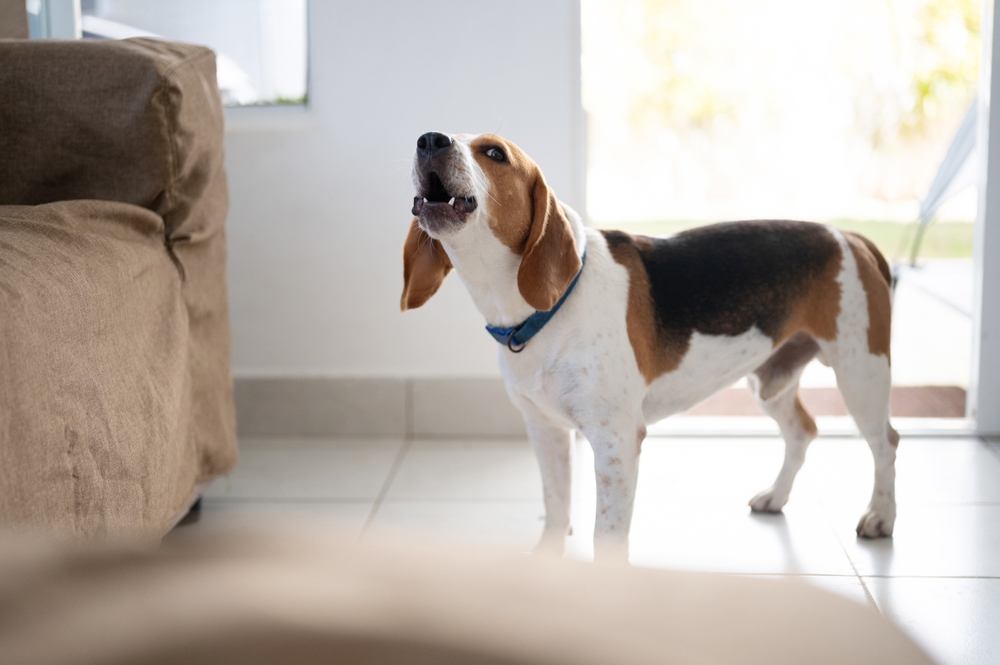
Beagles are known for their distinctive howls and are considered one of the most vocal dog breeds. Their history as hunting dogs has made them adept at alerting their owners to the presence of potential game, and this trait has stuck with them even as family pets. Beagles are not just about barking, though; their vocal range includes whining, baying, and a variety of other sounds. They use their voice to communicate their needs, whether they’re hungry, lonely, or just in the mood for attention. This breed’s vocal nature means beagles are often used in scent detection roles, such as in airports.
However, while their vocal nature is endearing to many, it can be overwhelming for those who prefer quieter pets. Beagles can be quite stubborn, and training them to control their barking can be a challenge. According to the American Kennel Club, consistent training and socialization from a young age can help manage their vocal tendencies. Still, potential beagle owners should be prepared for a lot of noise if they want this curious vocalist in their home. Their vocal expressions are just part of their charm, making them a favorite among families and singles alike who can appreciate their unique way of communicating.
2. Siberian Husky: The Howling Explorer
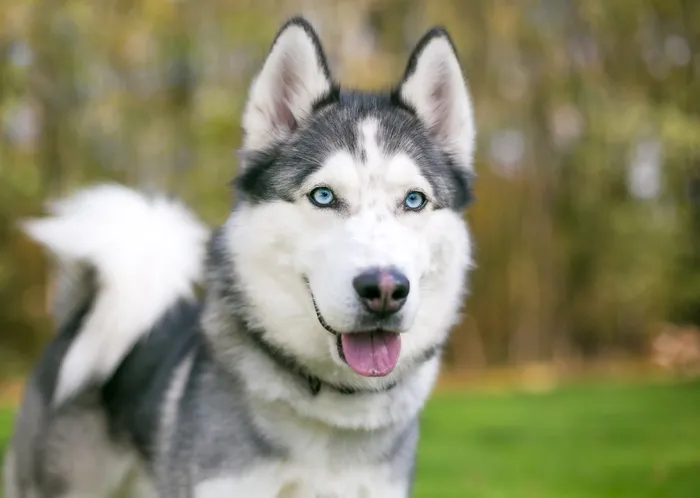
Siberian Huskies are not just renowned for their beautiful blue eyes and thick fur; they are also infamous for their vocal prowess. This breed is known for its howling, which can often sound eerily similar to a human voice. Huskies are a breed that loves to explore, and they are not afraid to let you know how they feel about their adventures. Social animals by nature, Huskies often use their voice to bond with their human companions and other dogs. Their howling can sometimes be a method of communication, especially over long distances.
In addition to howling, huskies can be quite chatty with a range of barks, whines, and yips. This vocal behavior is often a reflection of their social and energetic nature, as they are always ready for interaction. Training can help manage their vocal tendencies, but it’s important to understand that this is an inherent trait of the breed. As noted by many dog training experts, providing sufficient exercise and mental stimulation can help reduce excessive howling. For those who appreciate an active and vocal breed, the Siberian Husky makes an excellent companion.
3. Chihuahua: The Tiny Bark Machine
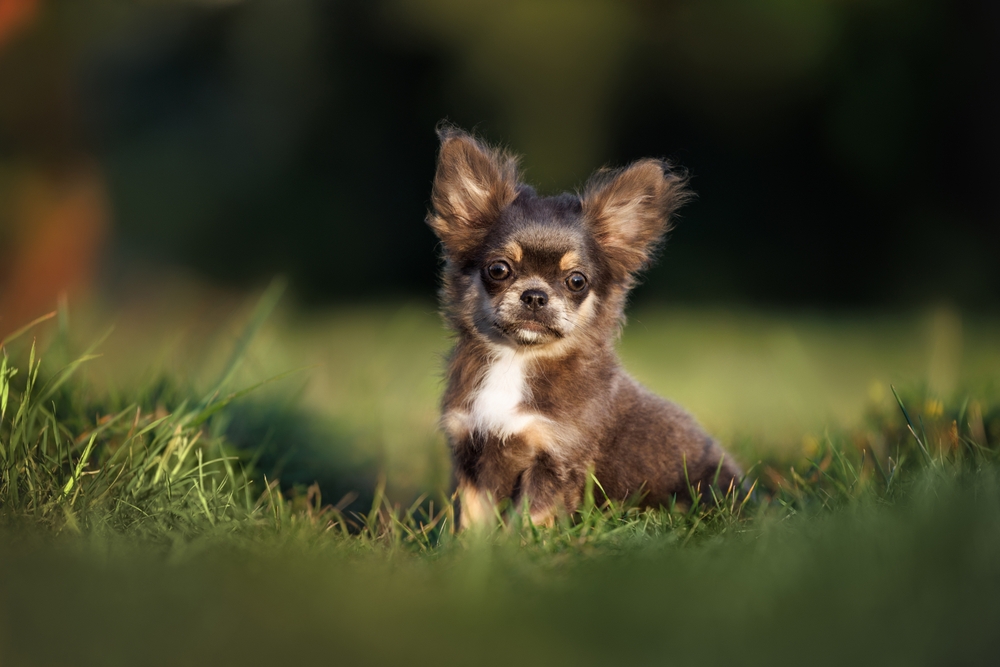
Chihuahuas may be small in stature, but they more than make up for it with their mighty voices. These little dogs have a big personality and aren’t afraid to express it vocally. Their barks can be surprisingly loud and persistent, especially when they want to alert their owners to strangers or unfamiliar sounds. Chihuahuas are fiercely loyal and often use their vocal abilities to protect their loved ones. This protective instinct, combined with their territorial nature, makes them one of the more vocal small breeds.
Despite their small size, Chihuahuas have a lot of energy and can be quite stubborn, which sometimes leads to excessive barking. Training them to control their vocal tendencies requires patience and consistency. However, potential owners should be prepared for a dog that loves to talk, especially if they leave the house often. For those who love a dog with a big personality in a tiny package, the Chihuahua is an ideal choice.
4. Dachshund: The Spirited Barks and Whines

Dachshunds, often affectionately known as “wiener dogs,” are not only recognizable by their long bodies but also by their strong voices. They were originally bred for hunting badgers, and their vocal nature was essential in helping hunters locate them underground. Dachshunds are known for their spirited barking, which they use to alert their owners to any changes in their environment. They are also quite expressive with their whines and yips, making them a vocal companion for those who enjoy a chatty dog.
Despite their small size, dachshunds are brave and bold, often using their voices to defend their territory. This breed can be quite stubborn, which can result in persistent barking if not properly trained. Consistent training and positive reinforcement can help control their vocal tendencies. For those who appreciate a dog with a robust personality and voice, the dachshund makes a wonderful addition to the family.
5. Yorkshire Terrier: The Lively Little Buzzer

Yorkshire Terriers, or Yorkies, are known for their lively personalities and high-pitched barks. Despite their small size, they have a huge presence and aren’t afraid to make themselves heard. Yorkies were originally bred to catch rats in clothing mills, and their vocal nature was an important trait for alerting workers. Today, they use their voices for a variety of reasons, from alerting their owners to visitors to expressing excitement or displeasure. Their barks can be sharp and persistent, especially if they perceive a threat to their territory.
Yorkies are intelligent and energetic, which can sometimes lead to excessive barking if they are not properly stimulated. Training is essential to manage their vocal tendencies, and positive reinforcement is a key strategy. For those who love a dog with a feisty personality and a voice to match, the Yorkshire Terrier is a perfect choice. They bring a lot of energy and charm to any household.
6. Miniature Schnauzer: The Bold Barker
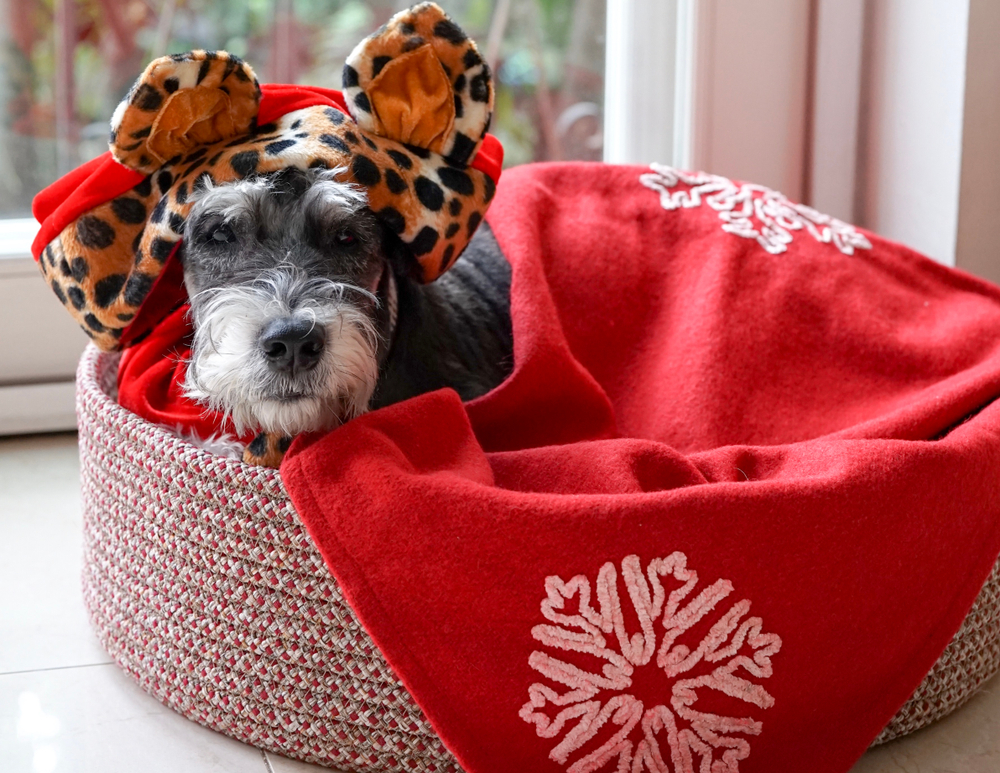
Miniature Schnauzers are known for their distinctive beards and expressive eyebrows, but they are equally well-known for their vocal abilities. This breed is bold and energetic, often using their voice to make their presence known. Originally bred as farm dogs, they have a natural inclination to bark at any unusual sights or sounds. Their bark is sharp and commanding, ensuring that any potential intruder knows there’s a Schnauzer on guard. Despite their small size, they have a powerful voice that demands attention.
These dogs are highly intelligent and trainable, but their vocal nature requires consistent training and socialization. Miniature Schnauzers can be quite vocal if they are bored or not given enough exercise, making mental and physical stimulation crucial. They thrive in environments where they have plenty of interaction and tasks to keep them busy, which can help manage their barking. For those who appreciate a dog with a strong personality and a protective nature, the Miniature Schnauzer is an excellent choice. They are wonderful companions, full of life and energy, and they are always eager to communicate with their human family.
7. Pomeranian: The Fluffy Noise-Maker
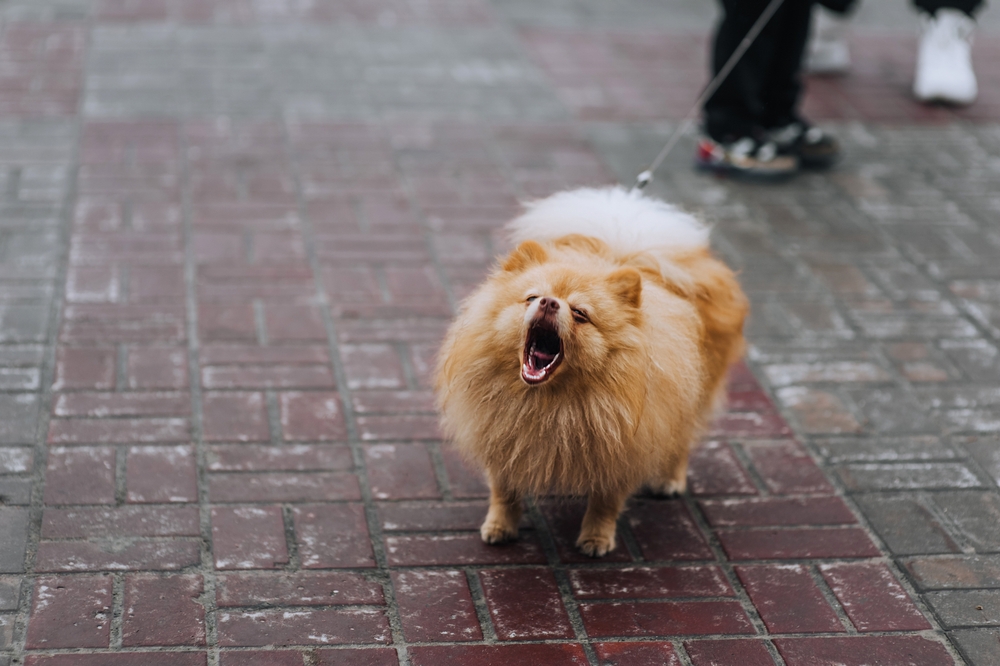
Pomeranians may be small and fluffy, but they are certainly not shy when it comes to using their voices. Known for their bold personalities, Pomeranians are always ready to alert their owners to anything out of the ordinary. Their barks are high-pitched and frequent, often used to express excitement, curiosity, or alarm. This breed is fiercely protective and often uses its voice to guard its territory and loved ones. Despite their small size, Pomeranians have a big presence, and they aren’t afraid to make it known.
Their vocal tendencies, combined with their energetic nature, make Pomeranians lively companions. They require regular training and socialization to ensure their barking doesn’t become excessive. Positive reinforcement and consistent commands can help manage their vocal tendencies. Pomeranians thrive in environments where they receive plenty of attention and mental stimulation. For those who love a dog with a bubbly personality and a lot to say, the Pomeranian is a delightful choice. Their expressive nature and fluffy coats make them a favorite among dog lovers.
8. Shetland Sheepdog: The Vocal Herding Enthusiast
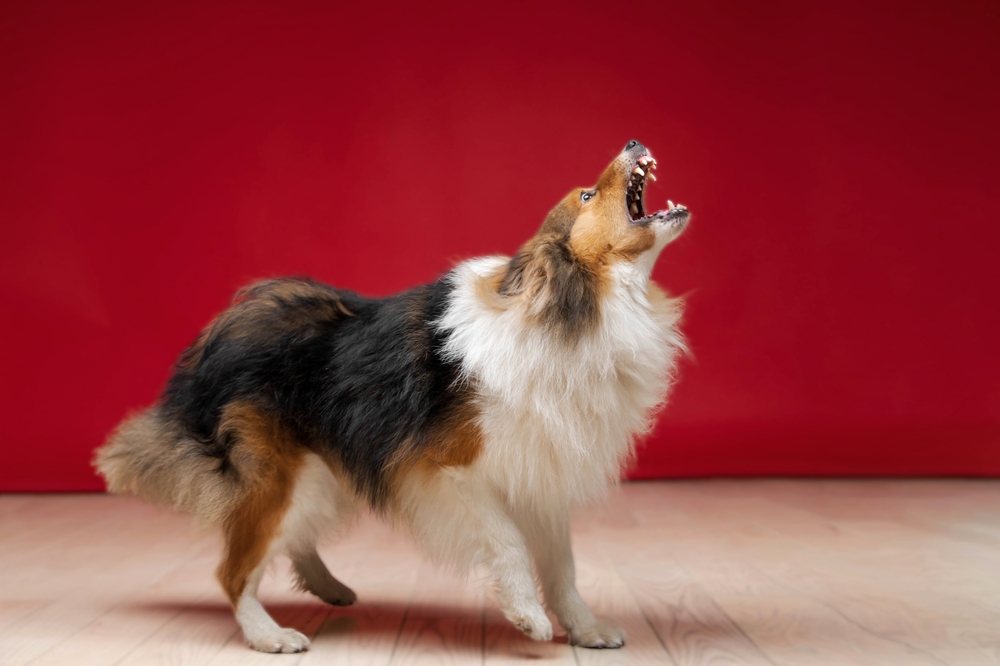
Shetland Sheepdogs, or Shelties, are known for their intelligence and agility, but they are equally famous for their vocal nature. Originally bred for herding, this breed has a strong instinct to bark as a way of guiding and controlling livestock. Shelties are incredibly alert and will use their voice to alert their owners to any changes in their environment. They are highly expressive and use a range of vocalizations, from barks to whines, to communicate with their human companions. This natural vocal tendency makes them excellent watchdogs.
Despite their vocal nature, Shelties are highly trainable and respond well to positive reinforcement. Early socialization and training can help manage their barking and ensure it doesn’t become excessive. Shelties thrive in environments where they have a job to do, whether it’s herding, agility, or obedience training. They are happiest when they are mentally and physically stimulated, which can help reduce excessive vocalization. For those who appreciate a dog with intelligence, energy, and a lot to say, the Shetland Sheepdog is an excellent choice. Their loyalty and vocal nature make them wonderful companions.
9. Basset Hound: The Mellow Howler

Basset Hounds are known for their droopy ears and mournful eyes, but they are also quite vocal. This breed, with its long history as a hunting dog, uses its distinctive howl to alert its owners to the presence of game. Basset Hounds have a deep, resonant voice that can be heard over long distances, making them excellent trackers. They are not just about howling, though; Basset Hounds are also expressive with their barks and whines. This vocal nature is a reflection of their social and intelligent personality.
While Basset Hounds are generally laid-back, they can be stubborn and require consistent training to manage their vocal tendencies. Early socialization and training can help ensure that their vocalizations are controlled and appropriate. Basset Hounds thrive in environments where they have plenty of social interaction and mental stimulation. For those who appreciate a dog with a strong voice and a gentle demeanor, the Basset Hound is a perfect choice. Their vocal expressions and loving nature make them endearing companions.
10. Maltese: The Charming Chatterbox
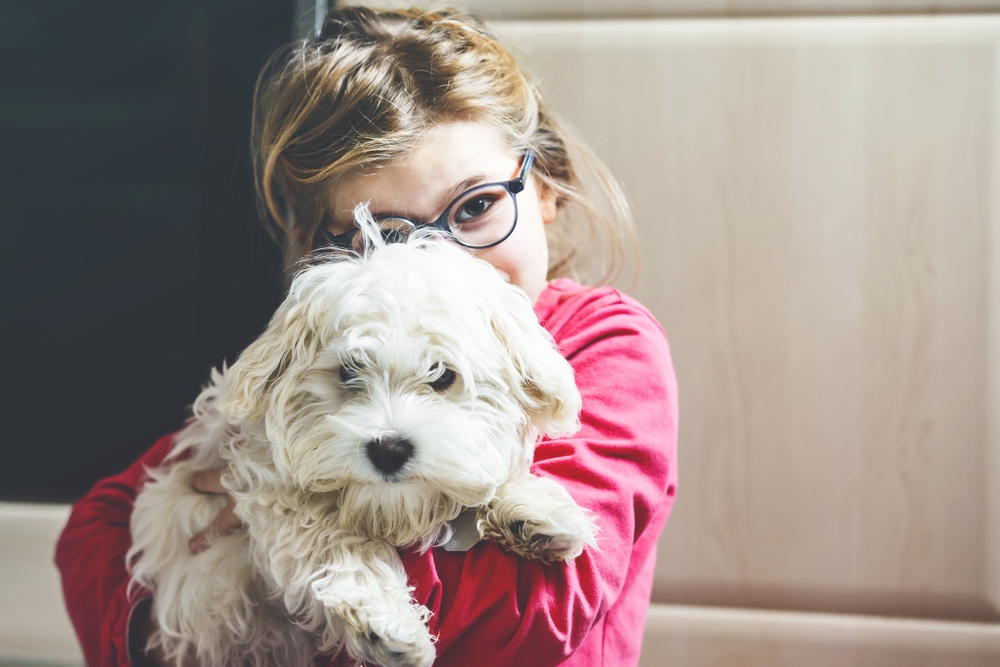
Maltese dogs are known for their silky white coats and charming personalities, but they also have a lot to say. This toy breed has a surprisingly loud bark for its size and uses it frequently to alert its owners to any changes in their environment. Maltese are very social and love to interact with their human companions, often using their voice as a means of communication. They are known for being territorial and will use their vocal abilities to guard their home and family.
Despite their small size, Maltese are full of energy and require regular training to manage their vocal tendencies. Positive reinforcement and consistent commands can help control excessive barking. Maltese thrive in environments where they receive plenty of attention and mental stimulation. For those who love a dog with a big personality and a lot to say, the Maltese is an excellent choice. Their expressive nature and loving demeanor make them wonderful companions for families and individuals alike.
11. Boxer: The Energetic Vocalist
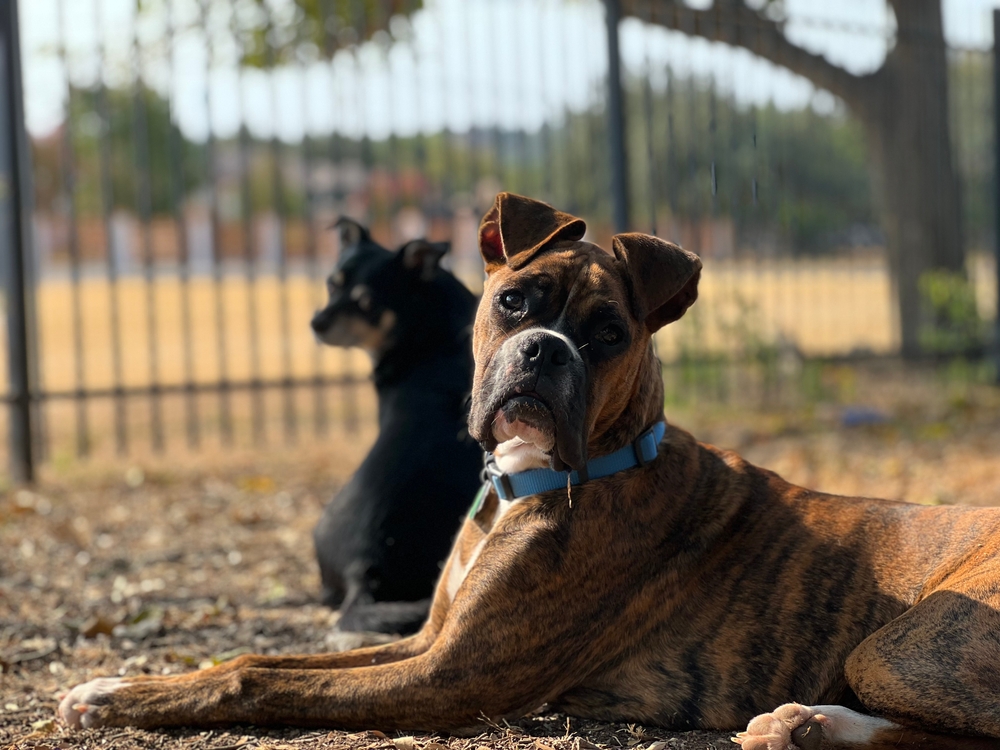
Boxers are known for their muscular build and playful nature, but they are also quite vocal. This breed is full of energy and enthusiasm, often using their voice to communicate with their human companions. Boxers have a range of vocalizations, from barks to growls, which they use to express excitement, curiosity, or alarm. They are known for their protective nature and will use their voice to guard their loved ones and territory.
Training is essential to manage a Boxer’s vocal tendencies, and positive reinforcement is key. Boxers thrive in environments where they have plenty of physical and mental stimulation, which can help reduce excessive vocalization. They are happiest when they have a job to do or an activity to engage in, such as obedience training or agility. For those who appreciate a dog with energy, loyalty, and a lot to say, the Boxer is an excellent choice. Their playful nature and vocal expressions make them wonderful companions.
12. Jack Russell Terrier: The Spirited Barker
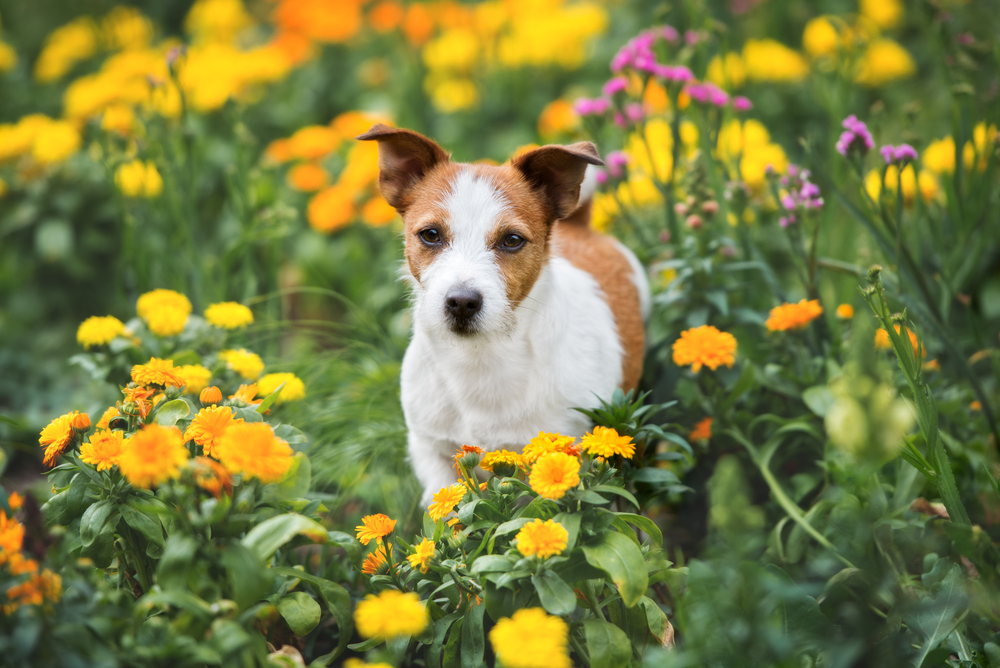
Jack Russell Terriers are known for their intelligence and agility, but they are also quite vocal. This energetic breed is always on the go, using their voice to alert their owners to any changes in their environment. Jack Russells have a sharp, persistent bark that they use to express excitement, curiosity, or alarm. They are known for their tenacity and will use their vocal abilities to guard their territory and loved ones.
Training is essential to manage a Jack Russell’s vocal tendencies, and positive reinforcement is key. Jack Russells thrive in environments where they have plenty of physical and mental stimulation, which can help reduce excessive vocalization. They are happiest when they have a job to do or an activity to engage in, such as obedience training or agility. For those who appreciate a dog with energy, intelligence, and a lot to say, the Jack Russell Terrier is an excellent choice. Their spunky nature and vocal expressions make them wonderful companions.
13. Cocker Spaniel: The Affectionate Crooner

Cocker Spaniels are known for their beautiful coats and gentle nature, but they are also quite vocal. This breed is very social and loves to interact with their human companions, often using their voice as a means of communication. Cocker Spaniels have a range of vocalizations, from barks to whines, which they use to express excitement, curiosity, or alarm. They are known for their affectionate nature and will use their vocal abilities to bond with their loved ones.
Training is essential to manage a Cocker Spaniel’s vocal tendencies, and positive reinforcement is key. Cocker Spaniels thrive in environments where they have plenty of social interaction and mental stimulation, which can help reduce excessive vocalization. They are happiest when they are engaged in activities such as obedience training or agility. For those who appreciate a dog with a gentle demeanor, intelligence, and a lot to say, the Cocker Spaniel is an excellent choice. Their loving nature and vocal expressions make them wonderful companions.
14. Pekingese: The Regal Chatterer

Pekingese dogs are known for their regal appearance and independent nature, but they are also quite vocal. This breed has a surprisingly loud bark for its size and uses it frequently to alert its owners to any changes in their environment. Pekingese are known for their strong-willed personalities and will use their vocal abilities to express their needs and desires. Despite their independent nature, Pekingese are affectionate with their human companions and use their voice as a means of communication.
Training is essential to manage a Pekingese’s vocal tendencies, and positive reinforcement is key. Pekingese thrive in environments where they receive plenty of attention and mental stimulation, which can help reduce excessive vocalization. They are happiest when they have a routine and a sense of security. For those who appreciate a dog with a regal demeanor, intelligence, and a lot to say, the Pekingese is an excellent choice. Their expressive nature and loving personality make them wonderful companions for families and individuals alike.
